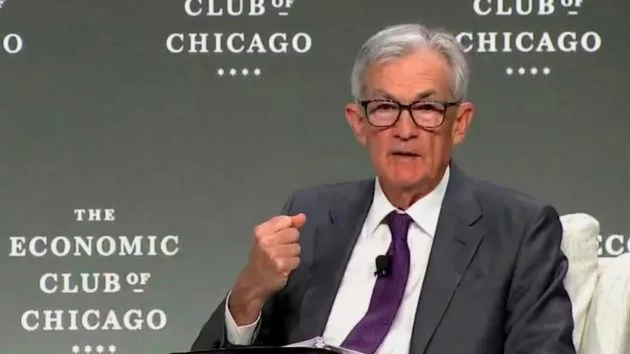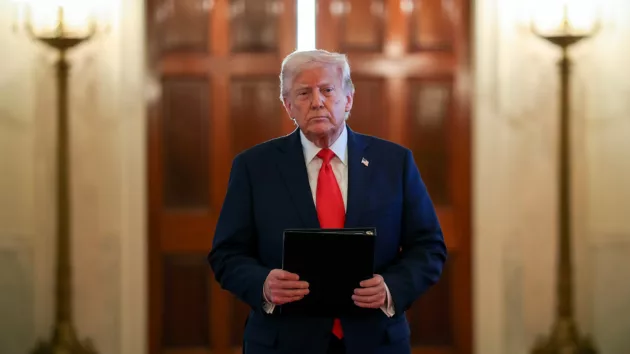
(NEW YORK) — The failure of Silicon Valley Bank, the second-biggest bank collapse in U.S. history, called into doubt the fate of roughly $175 billion in customer deposits.
Days later, the U.S. government guaranteed the protection of all Silicon Valley Bank deposits but the turmoil left Americans with a lingering question: Is my money safe in the bank?
Robust insurance protections for bank deposits and the infrequency of bank failures afford security for account holders, making deposits safe even as the industry undergoes turmoil, experts told ABC News.
“It’s absolutely 100% safe,” Mark Zandi, the chief economist at Moody’s Analytics, told ABC News. “All depositors in banks and credit unions can be entirely confident that their money is safe.”
The Federal Deposit Insurance Corporation, or FDIC, which safeguards the stability of the financial system, protects depositors at all FDIC-insured banks for up to $250,000 in funds for each different type of account held.
Nearly every bank is FDIC insured, and the vast majority of accounts fall below the $250,000 threshold.
In other words, bank account holders with $250,000 or less can rest assured that their money enjoys full protection from the U.S. government in the event of a bank failure.
A joint account between two individuals qualifies for FDIC insurance of up to $500,000.
Similarly, credit unions are insured by the National Credit Union Administration, a government agency.
In an effort to tamp down financial panic and prevent a wider crisis, the U.S. government dramatically expanded FDIC insurance protections to cover accounts at failed banks Silicon Valley Bank and Signature Bank that exceed the $250,000 threshold.
If other financial institutions collapse as a result of the fallout, the government will likely extend that full protection to depositors at the affected banks, Zandi said.
“There is no way at this point, given all the angst, that the government is going to allow a depositor to lose a penny,” he said.
In normal market conditions, however, depositors with funds that exceed $250,000 stand to lose part or all of the money if a bank goes belly up. Individuals or institutions with holdings that exceed that threshold can divide their money between multiple different account types or banks to keep each one below the threshold, Zandi said.
When an FDIC-insured bank collapses, a government agency typically takes control of the bank and soon afterward makes funds available to customers.
“In many cases, regulators go in and seize the banking operations and determine what deposits are owed and do their best to get those paid out within the next day or two,” Jeff Jones a finance professor at Missouri State University, told ABC News.
Recent Stories from ABC News
Depositors can find solace not only in the robust insurance protections but also in the knowledge that U.S. bank failures are very rare, experts said.
Not a single bank failure took place last year or the year before, according to research firm Bankrate. In 2010, at the height of the Great Recession, 157 banks failed.
For context, there are 4,706 commercial banks and savings institutions insured by the FDIC, the agency said last month.
“You can calculate the probability,” Zandi said. “It’s pretty small.”
Despite the collapse of two of the nation’s 30-largest banks in recent days, the possibility of widespread bank failures remains highly unlikely, the experts said, noting extraordinary government intervention that helped contain the damage to the financial system.
“I feel confident that the financial system is on very solid footing,” Zandi said. “The government intervention here was extremely aggressive.”
Besides raising awareness about how to protect one’s funds in the bank, the downfall of Silicon Valley Bank also offers lessons for how to invest money elsewhere, the experts said.
Silicon Valley Bank had loaded up on investments into long-term Treasury bonds and mortgage bonds, which typically deliver small but reliable returns amid low interest rates.
As the Federal Reserve aggressively hiked interest rates over the past year, however, those holdings lost significant value.
The takeaway for individuals is the importance of diversification, the experts said, defining that principle as the placement of funds into a range of investments.
“As long as you’re well-diversified, any kind of issue you have will likely be very small and contained,” Jones said.
Copyright © 2023, ABC Audio. All rights reserved.




